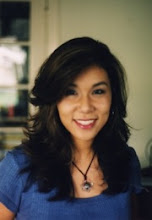
Anderson, L. (1999). Speak. NY: Farrar Straus Giroux. ISBN: 0374371520.
Plot Summary: Melinda Sordino is afraid to enter high school on the first day and with good reason. It seems like everyone she ever knew (including her best friend) hates her and shuns her whenever they see her. They are angry that she called the police on the night of a summer party and got everyone in trouble.
What they don’t know until the end of the novel is that during her drunken state at the summer party, she is raped in the woods by an older classmate named Andy Evans. Because she cannot bring herself to tell anyone, she becomes progressively depressed, stops speaking and begins to seclude herself inside a janitorial closet at school. She manages to befriend a new student, though is abandoned when her new friend has the chance to join a popular clique. Her only source of comfort is teacher Mr. Freeman, who encourages his students to express themselves through art.
When her former best friend, Rachel, begins dating Andy, Melinda feels obligated to tell her about the rape. Andy confronts her and attempts to rape her again until Melinda taps into her deep sense of outrage and courageously fights him off. She is saved by another former friend and the news of her victimization turns her status of social pariah into something like a heroine. As she completes her art project at the end of the year, Mr. Freeman encourages her to tell her story and to move towards healing.
Critical Evaluation: Speak is a moving and poignant novel, keenly capturing the isolation and self-blame that teens experience after a painfully traumatic event. The good, bad and indifferent behavior of these teen characters is honest and accurate. Melinda’s reaction to the whole episode and its sad aftermath is authentically portrayed and symbolically represented by her inability to speak of such an inexplicable crime. Most surprising, though, is her inner dialogue that continues to be witty and wry in her observations about the hypocrisy and superficiality of her parents and her classmates around her. She remarks, “My parents didn’t raise me with religion. The closest we cme to worship is the Trinity of Visa, MasterCard and American Express.” After travelling through an agonizing journey of Melinda’s year-long recovery process, it’s such a hard-won victory to witness her metamorphosis from a tender victim into becoming a brave, confident and creative young woman.
Reader’s Annotation: Melinda Sordino called the cops during a summer party. Now her friends won't talk to her and everyone hates her. The only place she can exist is inside her own head. But it’s not a peaceful place, because something bad happened that night and she can’t ever tell anyone.
Information About the Author: Laurie Halse Anderson was born in 1961 in New York. She studied language and linguistics from Onondaga County Community College and Georgetown University. Following her education, she worked as a reporter for the Philadelphia Inquirer, a freelance writer for magazines and a self-publishing author of children’s books. She says her idea for Speak occurred immediately after hearing a young girl screaming for help during a nightmare. The subsequent writing of this book was long and arduous, in which she rewrote the ending three times. The honors she received include being a finalist for the National Book Award in Young People’s Literature, the Edgar Allan Poe Award, the Los Angeles Times Book Prize, and the Printz Honor Medal Book Award. This book was made into a movie in 2004 starring Twilight-fame actress, Kristen Stewart, and has been translated into several languages, including Chinese, Dutch, Hungarian and German. Anderson currently resides with her husband and two daughters in Pennsylvania.
Genre:
Teen Issues: Mental, Emotional and Behavioral Problems, Sexual Abuse, Outsiders
Contemporary Life: Coming of Age
Curriculum Ties: English class, Art Class, Psychology class, Books Clubs, Social Clubs, Health class, Recommendations for Young Adult Female Readers
Booktalking Ideas:
1.) What happens when friends turn against you and shun you in school
2.) Teen rape: Why it happens, what to do, how to prevent it
3.) How Melinda chooses to cope with her trauma and depression
4.) The value of artistic expression for communicating feelings and ideas
5.) People around Melinda and how they affect her: former friends, her parents and her teachers.
Reading Level/Interest Age: Ages 13-18.
Potential Challenges: Due to its controversial subject matter, Speak has often been challenged since its publication in 1999.
• Content includes issues of rape, teenage drinking and mental illness
Defense Strategy:
• Provide statistics regarding the reality of teen rape:
http://www.soundvision.com/Info/teens/stat.asp
http://www.troubledteen101.com/articles52.html
http://www.associatedcontent.com/article/277788/how_to_avoid_teen_rape.html
• Provide the author’s response to her book being challenged and her opposition to censorship: http://en.wikipedia.org/wiki/Speak_%28novel%29
• Provide our Collection Development Policy (which includes Young Adult scope): http://ww2.cityofpasadena.net/library/collection.asp
• Refer to book reviews and awards earned by this book:
http://www.thingsmeanalot.com/2009/07/speak-by-laurie-halse-anderson.html
http://www.goodreads.com/book/show/439288.Speak
• Provide guidelines book clubs have used to address issues: http://lakesidemusing.blogspot.com/2009/10/book-club-meeting-speak-by-laurie-halse.html
Why This Book Was Included: I kept hearing about this author and the impact she has had upon YA literature. I decided to read the book that earned her many awards yet is consistently challenged for its controversial topic. I’ve discovered that indeed it’s an important book and one that needs to be talked about by teens today. I also agree with her statement that censorship of this book “does not protect anybody. Quite the opposite. It leaves kids in the darkness and makes them vulnerable.” She’s a brave writer who will no doubt author more remarkable books and continue to influence the YA genre.

No comments:
Post a Comment